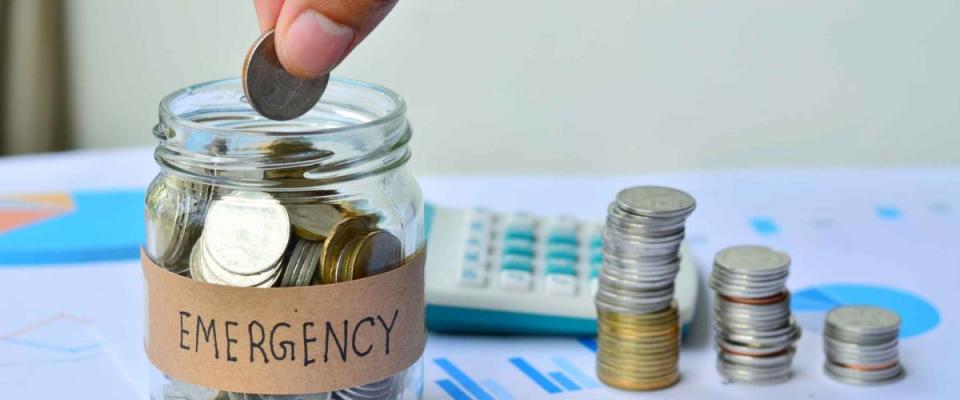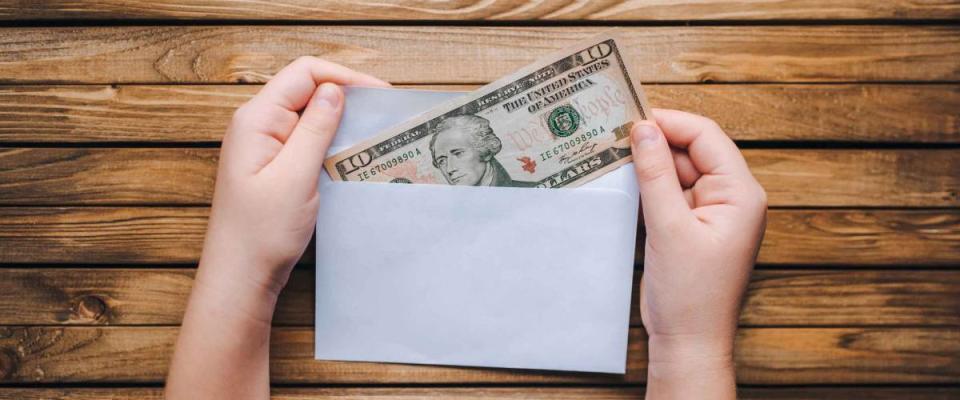The 3 worst ways people will use their next stimulus check, Suze Orman says

- Oops!Something went wrong.Please try again later.
President Joe Biden’s plan to give Americans a third round of stimulus checks — for up to $1,400 — is moving through Congress, with the Democratic leaders who run the House and Senate aiming to get a completed bill on the president's desk before March 14.
That could give you a fresh payment before April. The U.S. House passed the legislation early on Saturday; it now goes to the Senate, where Biden says he's hoping for "quick action."
Personal finance icon Suze Orman wants you to start thinking now about what you'd do with new COVID relief cash. She says there are right ways and wrong ways people have been using their stimulus checks.
Her general advice on the topic is to think "right now" and think long term and think of others. More specifically, Orman says avoid these three common stimulus check mistakes.
1. Not taking care of bills first

Orman tells Yahoo Finance Live that when Americans receive stimulus money, they should use it to pay bills first.
That may sound obvious, but some people don't prioritize. If money is tight or your income is uncertain, don’t focus on paying down your debts with your stimulus check, Orman says. In a recent CNBC interview, she recommended sticking with the minimum payments on credit cards, for now.
Though overall credit card debt plunged by 9% last year, according to the credit bureau Experian, many people have been relying on their plastic more heavily, just to get by. If that sounds familiar, you might consider rolling your balances into a lower-interest debt consolidation loan to make the debt more affordable.
Make sure all the big expenses that you must pay are settled: your rent or mortgage, any car payment, auto insurance and student loans.
Note that car insurance companies have been cutting their rates because people have been driving less during the pandemic. If your insurer won’t give you a break, shop around and compare rates to find a better deal.
And, federal student loan payments are on hold through at least Sept. 30. If you have private loans that you can't put on pause, you could shrink your payments by refinancing to one of today’s record-low interest rates.
2. Not building an emergency fund

Most experts recommend that consumers set aside an emergency fund with enough money to cover three to six months' worth of expenses.
Suze Orman says people need to prepare for 12 months.
A full year? Really?
She says 12 months is critical now because once mortgage and student loans come out of forbearance and a federal moratorium on evictions runs out, you may need that money right away.
“This whole thing that's happening with evictions and a moratorium on mortgage payments scare me,” Orman said, in an interview with Yahoo Finance Live. “Because what happens when you have to pay up?”
An estimated 2.6 million U.S. homeowners are currently postponing their mortgage payments, and about 20% of renters are behind on their rent payments, according to industry and census data.
While a $1,400 stimulus check wouldn’t be nearly isn’t enough to cover an entire year of expenses, you could get the money growing by putting it into a high-interest savings account.
Or, chase better returns by investing the cash, using a popular stock-trading app that’s geared toward beginners.
3. Keeping the money if they don't need it

While many Americans have suffered mentally and emotionally through the pandemic, they’re managing just fine, financially. They're the fortunate ones.
They've been working safely from home, saving money they'd normally spend on eating out and traveling, and have been paying down debt and boosting retirement savings.
Orman says people who don’t need another stimulus check to cover urgent expenses or fill up an emergency fund should consider donating it, to help someone who can really use the money.
“Through no fault of their own, there are millions and millions of people who are suffering and they have no idea of what they should do,” she tells Yahoo.
If you're not among the lucky ones, here are a few tips on how to stretch your budget until the next stimulus check arrives:
Find creative ways to cut expenses. You don’t have to spend money to have fun. Instead of getting takeout for date night, make a budget-friendly meal together. When you do need to buy something, make sure you’re not paying more than you should by using a free browser extension that will find you lower prices when you shop online.
Refinance your mortgage, if you've got one. Mortgage rates remain historically low, so refinancing your existing home loan can provide major savings. Mortgage tech and data provider Black Knight said in early February that millions of U.S. homeowners still had the potential to cut their house payments by hundreds of dollars a month through a refi.
Turn your talents into income. Maybe you write, or know website or graphic design or even have a knack for doing celebrity voices. By using an online marketplace for gig work, you can find someone looking to pay for your unique services.

